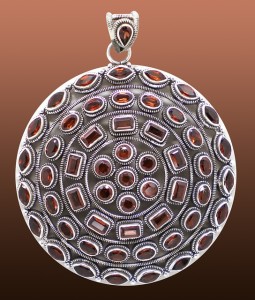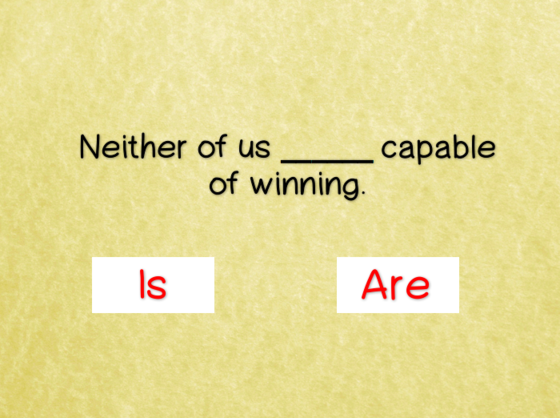Blood types have different antigens in blood cells.
They are signals of antibodies that destroy foreign cells in the body.
But scientists have no answer why they are different.
There is a suggestion that they are related to diseases and immunity.
People with type B blood are more susceptible to E. coli; people with type O blood are at less risk of dying from malaria.
FCE Class Blog
Not just another The Gnosi Schools Blog Site
April 21st, 2017
March 1st, 2017
Prove you’re a grammar master and pass this TEST!
February 15th, 2017
Give it a try here!
January 11th, 2017
- The Romans named January after Janus, the God of beginnings and transitions. Janus had two faces, one looking at the past and what’s coming to an end, and one looking forward, towards new beginnings and what’s coming.
- January’s birthstone is Garnet, which represents balance!

- The flower connected with this month, is the carnation, which symbolizes love, fascination and distinction.
- January is also the National Donate Blood month, so if you are a donor, now is the month to give the gift of life to someone! Such an amazing start of the year, don’t you think?
- It is considered the coldest month in the Northern hemisphere, but not the Southern.
- January days are the coldest in the UK, whereas the coldest nights are during February.
- The only Shakespeare plays that mention January are “Much Ado about nothing” and “Winter’s Tale”.
- It’s the National Soup month in the USA
Sources:
http://www.flowermeaning.com/carnation-flower-meaning/
http://www.prettyopinionated.com/2013/01/fun-trivia-facts-about-january/
http://www.tipsywriter.com/blog/6-interesting-facts-about-january/
http://www.express.co.uk/life-style/top10facts/549736/Top-10-facts-about-January
February 15th, 2016
Check out this awesome link!!!
http://resources.woodlands-junior.kent.sch.uk/customs/year/february.htm
November 26th, 2015
stuffing (noun)

Earlier in the month we featured the word stuff. Stuffing comes from the cooking meaning of stuff, and it is the mixture used to stuff chicken, turkey, or other foods. In the North American tradition, stuffing is often made using bread, onions, celery, and black pepper (though, of course, every family has its own recipe) and it is used to stuff turkey for Thanksgiving. In England, stuffing is used in turkey or goose at Christmas. In other cultures, meats and vegetables are often stuffed with many things, including rice and vegetables. Of course, stuffing can also be the material inside cushions, toys, or furniture.
Example sentences
- Mom prepares the best stuffing I’ve ever tasted! I can’t wait for Thanksgiving!
- Tom bought a Spanish cookbook and is now trying to make the stuffing to bake inside peppers.
- The dog made a mess when we were gone; she pulled the stuffing out of the sofa cushions!
Additional Information
We call the Thanksgiving food stuffing because, theoretically, it is cooked inside the turkey, but nowadays many people actually bake stuffing separately and do not stuff it in the turkey at all. Cooks often suggest this because it can taste better this way, and you can also make more of it if you’re not restricted by the size of the turkey.
Did you know?
When we think of Thanksgiving, we usually picture the American holiday, celebrated on the third Thursday in November in the US and on the second Monday in October in Canada. But the tradition is much older. Many religions have prayers of thanks or thanksgiving ceremonies to celebrate the end of the farming season, and these ceremonies often include a large meal that people cook and enjoy together.
Origin
Stuff dates back the first half of the 14th century and comes from the Old French verb estoffer (to stuff). Its use as a noun, with the -ing ending, dates from between 1520 and 1530.
(Source: http://daily.wordreference.com/w/NUnI892XKwNrV87vetYT3dnA)
November 23rd, 2015
tap (noun, verb)

As a verb, tap means ‘to strike something lightly and softly,’ and also ‘to enter words or numbers on a keyboard.’ As a noun, tap is something that you close and open to let liquid or gas flow (it’s often called faucet in the US in reference to liquids). Another verbal use of tap is ‘to get liquid out of something.’
Example sentences
- The sound of Rachel tapping her fingers against the table was so annoying!
- My keypad is broken and I can’t tap in your phone number!
- Laurence switched on the tap and poured himself a pint of beer.
- People tap maple trees to get maple syrup.
Multi-word forms
tap water (noun): This is water that comes straight from the tap. If you don’t want to pay for mineral water in a restaurant, ask for tap water instead (as long as you are in a country where the tap water is drinkable, of course).
on tap (adjective): This describes drinks, especially beer, poured straight from the barrel with a tap and served in a glass instead of a bottle. It is also used figuratively to mean that a plentiful supply of something is readily available. “What kind of beer do you have on tap?” Or “The good thing about the Internet is that there is so much information on tap.”
tap into (phrasal verb): This means ‘to use something as a resource’ and is often figurative. “Try to tap into your creativity when writing your short story.”
Additional information
We also use the verb tap when someone is selected for an important position. Example: “The board of directors tapped Julie to be the company’s next vice-president.”
Did you know?
Tap dance got its name from the sound of the dancers’ shoes tapping against the floor. Tap can mean either the dance itself or one of the pieces of metal attached to tap-dancing shoes.
Other forms
tapper (noun), tappable (adjective), tapless (adjective)
Origin
Tap, meaning ‘strike something lightly,’ dates back to before 1050 and comes from the Middle English word tappa and the old English word tæppa. Other meanings of the word emerged later, from the late 12th to early 13th centuries.
(Source: http://daily.wordreference.com/w/1CckmnhXdKIvOglYA763RBag)






No comments »